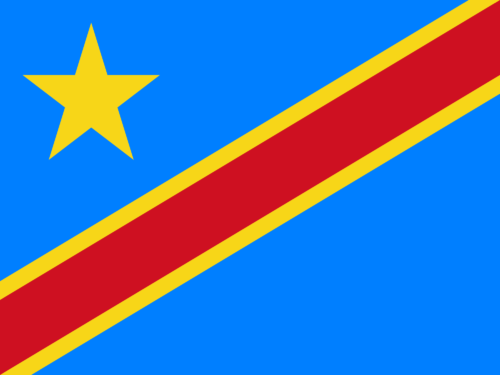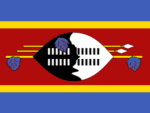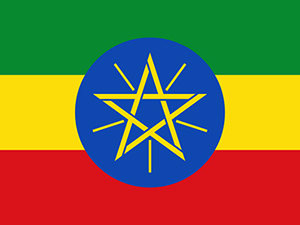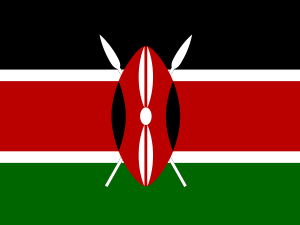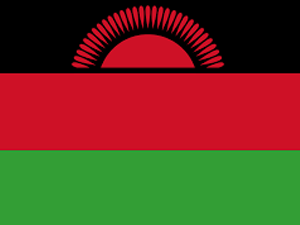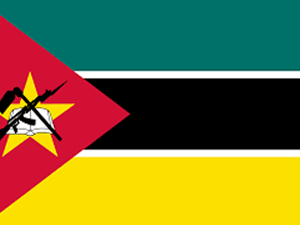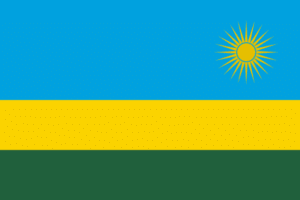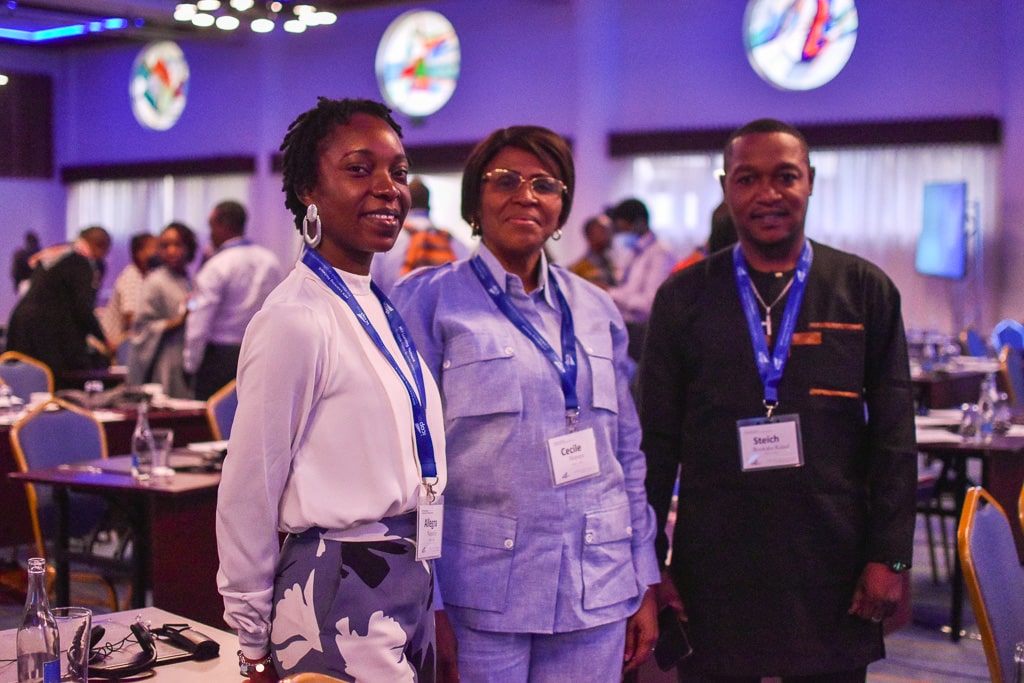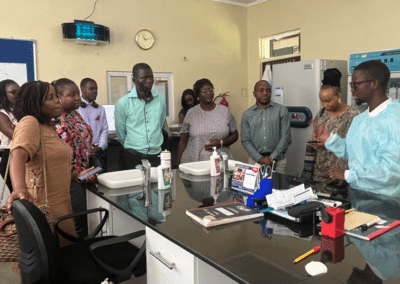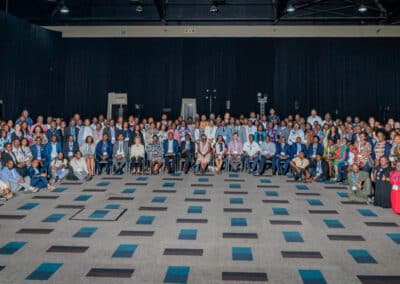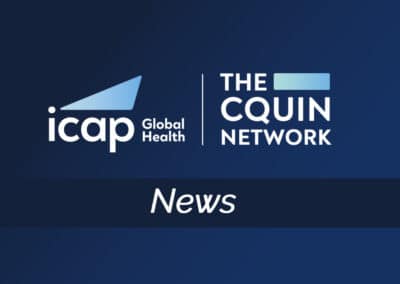For participants from Congo Brazzaville, the CQUIN Differentiated Service Delivery Across the HIV Testing Cascade (dHTS) meeting in Nairobi, Kenya, was a highly effective learning experience. While the country is not part of the CQUIN network, a partnership with the Global Fund enabled a delegation from Congo’s Ministry of Health to attend the meeting as observers.
With a population of over five million people and HIV prevalence of 3.8 percent, Congo has not yet attained epidemic control. “We want to expand our testing coverage because we have a huge gap in viral load testing primary due to a lack of screening tools,” said Cécile Mapapa, MD, MPH, director of the National Program to Combat HIV/AIDS and STIs of Congo Brazzaville. “Collaboration and mobilization between all HIV programs and stakeholders is also a huge challenge for us. We have learned from many countries here and are eager to scale up some of our programs.”
Dr. Mapapa was joined by Jair Steich Boukaka Kaled, Department of Monitoring and Evaluation, Documentation, Archives, and Statistics lead, and Allegra Nzambila, MD, Prevention and Care lead.
According to Dr. Mapapa, some interesting topics her team discussed at the meeting include re-engagement in HIV care, social media testing, and monitoring and evaluation of testing services. Scaling up PrEP services was also an important lesson learned at the meeting. “In my country, PrEP is just a project for key populations. We need to scale up. I imagine we will bring PrEP to adolescents, women, and more of the general population,” said Dr. Mapapa.
The delegation joined the Democratic Republic of Congo, Senegal, Liberia, and Cameroon’s paired group discussions. Case studies shared by South Africa and Uganda also impressed the team. “We admire how these countries have strengthened their linkage services.”
“Congo Brazzaville’s PNLS has a very enthusiastic team,” said Franck Boraud, MD, CQUIN Regional Clinical advisor and dHTS liaison for Congo Brazzaville. “While the country faces a number of challenges in mobilizing and coordinating differentiated service delivery, I believe that updating the country’s standard operating procedures and organizing a number of sensitization meetings will go a long way to improving this challenge so that the Congolese team can move forward with other activities it hopes to implement.”
Ahead of the dHTS meeting, Congo Brazzaville’s Ministry of Health conducted a self-assessment of their testing services using CQUIN’s dHTS capability maturity model. “We will work on our action plan when we go home. We want to scale up our testing services using the gaps and challenges identified in the testing capability maturity model,” reiterated Dr. Mapapa. “We plan to implement linkage to prevention and community testing for key populations by updating our country guidelines. I want to thank ICAP for inviting us to this meeting. The discussions here were significant.”





